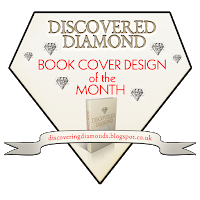Reviewer's Choice
This cover has been selected as
 |
| www.avalongraphics.org |
Amazon US
Amazon CA
Amazon AU
Goodreads
Fictional Drama
Viking / 900s
France/Normandy
Viking novels have abounded recently, and many focus on battles and raids. While K.M. Butler’s The Raven and the Dove opens with a Norse raid on a Frankish town, warfare is not central to its story. Cultural conflict and conciliation are.
In the early 900s, Frankia acknowledged the Norse warrior Rollo’s claim to all lands between Rouen and the mouth of the Seine, lands that had been raided by the Norse over some years, and largely abandoned both by the Franks and by their king. The Raven and the Dove tells the story of those years, and the slow cultural adaptation of both the Franks and the Norse to become, in only a generation or two, the people we know as Normans.
The story is told through two protagonists: the Norse shieldmaiden Halla, and the Frankish alderman Taurin. Worshipper of the Norse gods, sexually free, a warrior and a leader, Halla is unlike any woman Taurin has ever met. He, a devout Christian, bound by the early-medieval church’s ideas of sin and salvation, a leader who is primarily an administrator, Taurin bears no resemblance to any man of honour and standing Halla can envision. Yet when Taurin submits to Rollo’s supremacy to keep his people and lands safe from Norse raids, and Halla is made Rollo’s representative and governor of these new lands, expediency leads them to marry.
Small, subtle things illustrate both Halla and Taurin’s discomfort and culture shock: the layout of a hall, the way hair is dressed, as well as larger, more obvious ones of religious practices, or the expectations of women’s behaviour.
The conflicts of thought and belief, culture and expectation in their developing relationship mirror those of the larger community, an effective narrative device.
A second personal story, seen through Halla’s eyes, reinforces the blending of the two cultures. Poppa, daughter of Frankish nobility, is now the bride of Rollo. Her restricted life as a Christian woman of high status contrasts with her freedom and potential power as Rollo’s wife. But as the Norse leader, Rollo too has cultural conflicts to deal with; he must balance the Norse sense of justice against the Christian one, to keep both his peoples content. Compromise rarely pleases everyone, and conflict arises.
Butler balances action, description, and character development deftly; the pacing is excellent. History is neatly inserted primarily through conversation, without feeling like an ‘info-dump’, and the world the author invokes feels both well-researched and real, without jarring anachronisms. The prose is clean, the dialogue effective, and we see just enough of what the protagonists are thinking to give both insight and a rounding of characters into people we care about. The Raven and the Dove is an impressive first novel, one written with skill and craft.
Recommended for readers with an interest in early medieval European history with a slant towards social and cultural change rather than war.
Reviewed for Discovering Diamonds
© Marian L Thorpe






No comments:
Post a Comment
We do not accept comments. If you need to contact Discovering Diamonds go to the CONTACT facility
Note: only a member of this blog may post a comment.